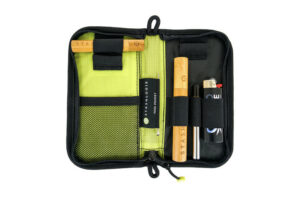
CBDA: New and Existing Research
Updated information from our previous blog, Getting to Know CBDA, to reflect new research. Cannabidiolic acid (CBDA) is one of three cannabinoid precursor compounds converted from Cannabigerolic acid (CBGA).

Updated information from our previous blog, Getting to Know CBDA, to reflect new research. Cannabidiolic acid (CBDA) is one of three cannabinoid precursor compounds converted from Cannabigerolic acid (CBGA).

As we head into this New Year, many of us have health improvements on the mind. As we consider gym memberships, new recipes, and the seemingly impossible feat of how

In the beginning of 2021, 13 states had recreational cannabis legalization measures up for vote. Five of those states succeeded in legalizing cannabis for all adults. Those were Connecticut, New

As 2021 comes to a close, we would like to bring attention to the accomplishments that have been made this year in the name of cannabis. Through much work and

With the holidays around the corner, it is likely you will be spending more time with your friends, family, and loved ones. Sometimes the reality of these life-long relationships is

We have compiled a list of stylish tools and accessories that are sure to elevate or offer uniqueness to your next cannabis experience. StashLogix StashLogix designs smell proof bags

For many women, there are several questions surrounding the potential benefits and uses for cannabis or hemp products to alleviate symptoms that may occur while pregnant, nursing, or during the

Pain and inflammation are the body’s physiological responses to tissue injury, infection and genetic changes. These responses can be divided into two phases: acute and chronic. The acute phase is

We’ve seen a significant increase in Delta-8’s popularity over the last year and this could be attributed to its current legal standing at the federal level. However, as it’s gaining

Two in every three Americans believe that cannabis should be legalized at the state and federal levels. If asked, as was done in a recent Pew Research Survey, 68% of
Open the following in new tabs if you:
If you are already a user: Client Login
If you are not, then register: Client Registration
Once Logged in, click below to refresh the page.